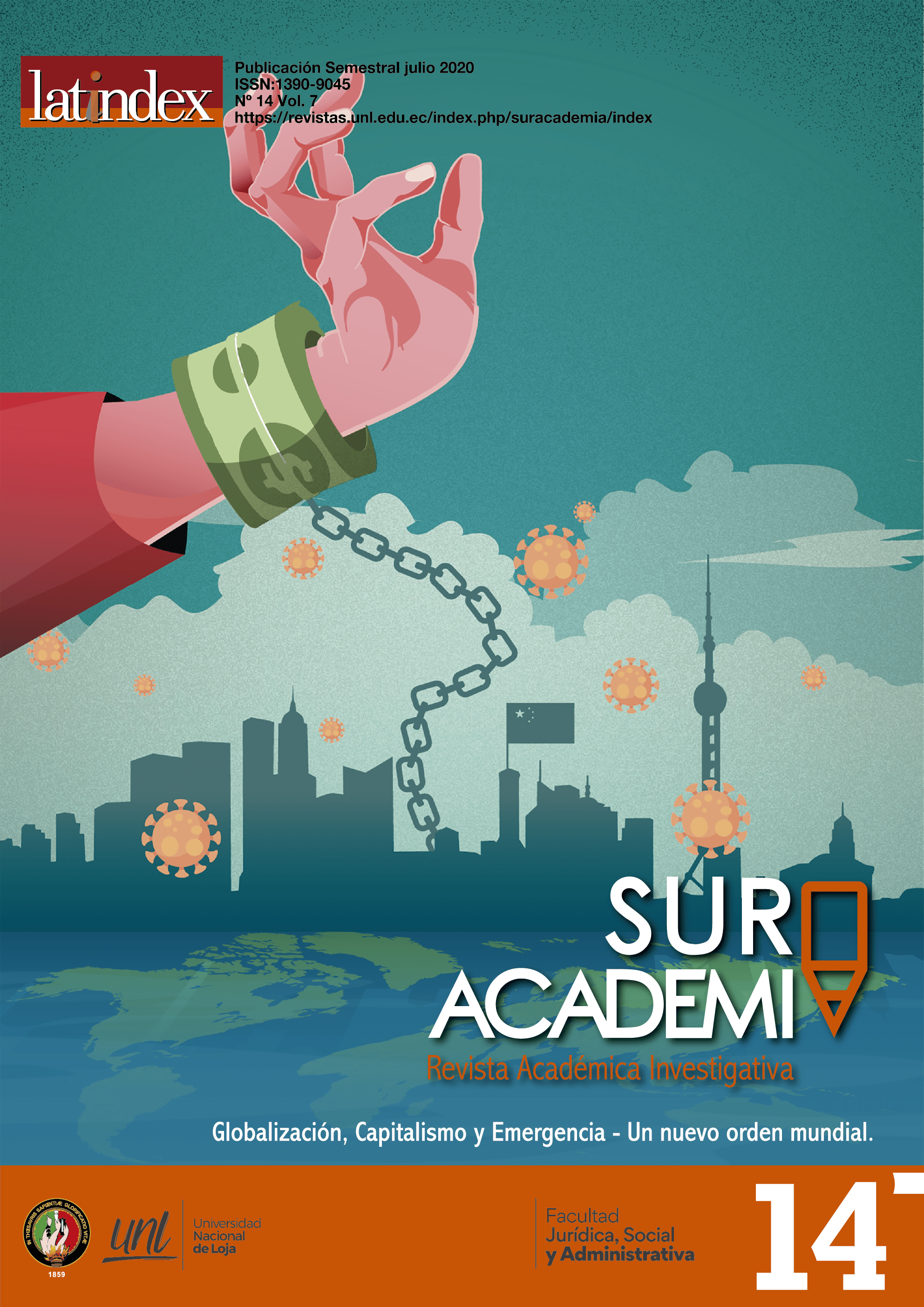Globalization, Capitalism and emergency- New Word Order.
Main Article Content
Abstract
It is likely that the definition of globalization has not been as questioned as in times of a pandemic. This, because the analysis and description -understood as different times and forms of study- of the events that shelter the "new normality" must contemplate a clear approach -as far as possible- about what a globalized world is. For this reason, some definitions of the term are reviewed to identify its relationship with capitalism and understand how the international system is configured in the face of the pandemic. In addition, an attempt is made to answer some questions that arise simultaneously with the health emergency: is there a break with globalization? Is globalization an economic term? Does the trade blockade or product discrimination mean a new world order? Are we experiencing new international dynamics? Does the closing of borders mean a break with the principles of globalization?
Finally, an attempt is made to describe the relationship between globalization and the Nation-State from the theory of complex interdependence, which includes a discussion between the different theoretical approaches that recognize -or not- the role of the State in the formulation of public policy, accepting the entry of new actors, such as supranational organizations, non-governmental organizations, transnational companies, etc. It should be clarified that here I expressed more questions than answers, however, the works that I try to introduce put on the table theoretical discussions that nourish not only established questions, but also answer their own questions from various areas of the social sciences, which It indisputably enriches the debate.
Article Details

This work is licensed under a Creative Commons Attribution-NonCommercial-NoDerivatives 4.0 International License.
Sur Academia proporciona acceso inmediato y gratuito a todos los contenidos de esta edición electrónica. La publicación no tiene ningún coste para los autores.
References
Hirst, P., Thompson, G., & Bromley, S. (2015). Globalization in question. John Wiley & Sons.
Held, D. (2014). ¿Hay que regular la globalización? La reinvención de la política. En J. Corbetta, J. Marchionni y R. Piana (eds.), Nuevos ensayos sobre la democracia contemporánea (pp.,50-68) 1ª ed). Buenos Aires: el autor.
Hirsch, J. (1997). ¿ Qué es la globalización?. Realidad Económica, 147, 7-17.
Dabat, A. (2002). Globalización, capitalismo actual y nueva configuración espacial del mundo. J. Basave et al., Globalización y alternativas incluyentes para el siglo XXI, Porrúa, México.
Laclau, E., & Moffeu, C. (2004). Hegemonía y estrategia socialista. Fondo de Cultura Economica USA.
Beck, U., Moreno, B., & Borrás, M. R. (1998). ¿ Qué es la globalización?.
Bauman, Z. (2010) La globalización: consecuencias humanas. Buenos Aires: Fondo de Cultura Económica.
Aguilar Monteverde, A. (2002). Globalización y capitalismo.
Keohane, R. O., & Nye, J. S. (1988). Poder e interdependencia: la política mundial en transición. Grupo Editor Latinoamericano.
Dale, R. (1999). Specifying globalization effects on national policy: a focus on the mechanisms. Journal of education policy, 14(1), 1-17. DOI: https://doi.org/10.1080/026809399286468
Bonal, X., & Tarabini-Castellani, A. (2011). Globalización y política educativa: los mecanismos como método de estudio. Revista de educación (Madrid), 355.
Rizvi, F., & Lingard, B. (2013). Políticas educativas en un mundo globalizado. Ediciones Morata.
Ohmae, K. (1995). The end of the nation state: The rise of regional economies. Simon and Schuster.
Garcia, C. N. (1999). La globalización imaginada (Vol. 76). Barcelona: Paidós.
Piana, R. S., & Cruz Tisera, J. (2017). Globalización, Interdependencia Compleja Y Mundialización: La Dialéctica Entre Lo Global Y Lo Local (Globalization, Complex Interdependence and Globalization: The Dialectic between the Global and the Local). Razón crítica, 3, 145-173. DOI: https://doi.org/10.21789/25007807.1240
Giddens, A. (1993). Consecuencias de la modernidad. Madrid: Alianza Ed.
McLuhan, M., Powers, B. R., & Ferrari, C. (1995). La aldea global. Barcelona: Gedisa.

